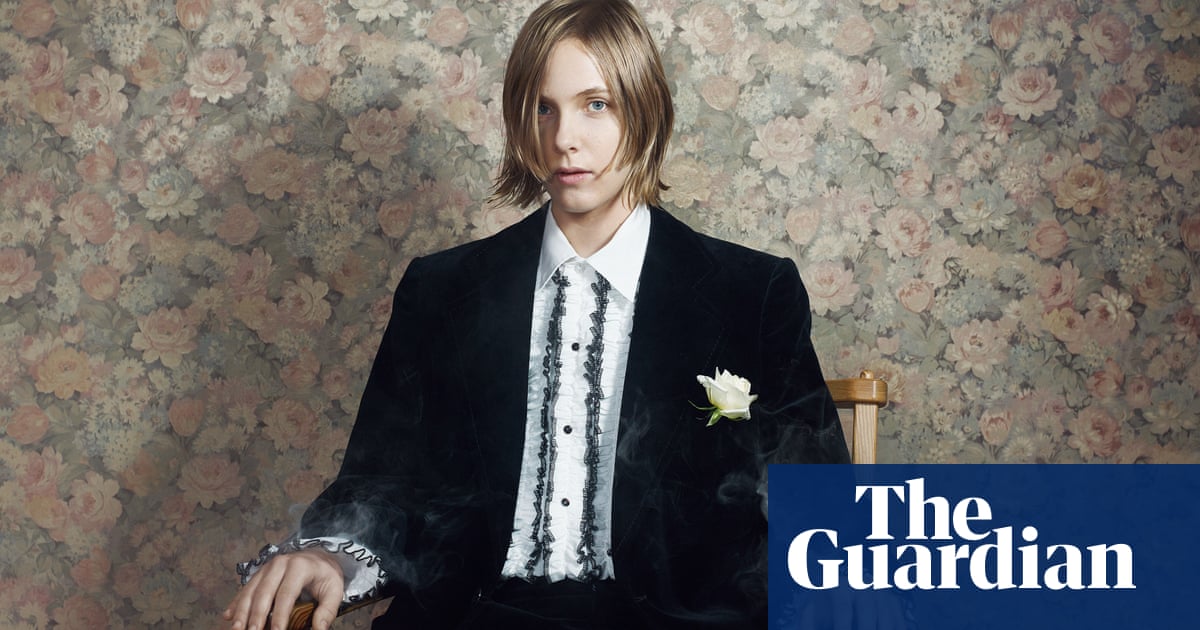
My Heavenly Favourite, the second novel from acclaimed Dutch author Lucas Rijneveld, belongs to a tiny, controversial subgenre: novels about child sex abuse rendered in exquisite prose. It is all the more transgressive in that it’s narrated by the abuser, who addresses his victim in an incantatory, unflinchingly graphic second-person rant about his eternal love. Such a book has to clear a very high bar not to seem like a cynical exercise. Rijneveld’s novel leaps effortlessly over, with room to spare.
The narrator is a 49-year-old vet serving a small farming community in the Netherlands, and his “heavenly favourite” is the troubled 14-year-old daughter of a dairy farmer. Neither is given a name: he calls her “Little Bird” or “Putto”; she calls him “Kurt” for Kurt Cobain. Little Bird is an outsider for her intellectual precocity, for what may be a budding psychosis, and for her secret, obsessive desire to have a penis. She is also sexually naive for her age, having been raised in a strict religious family, in which communication was short-circuited by the tragic death of her older sibling and the desertion of her mother. This echoes Rijneveld’s first novel, the International Booker-winning The Discomfort of Evening; both books draw on the author’s background.
Kurt makes himself an all-purpose parental figure for Little Bird, one who listens to her extravagant fantasies uncritically, quotes Samuel Beckett to her, and gives her effusive, unconditional adoration. He addresses her by a series of lofty, often creepy epithets: “my magnificent creature”, “my heavenly chosen one”, “my lightweight comrade”, “my fiery little fugitive”. He also claims he can help her grow a phallus, using her gender dysphoria as a lever of control.
Rijneveld conveys the squalor and despair of sexual violence with more fidelity than any other author I have read
Both characters are marvellous creations, at once highly aestheticised and chillingly convincing. Rijneveld makes brilliant use of Kurt’s profession, often showing him gloved up and arm-deep in a barn animal, with the attendant sensations described in tender, frank, repulsive detail. Kurt sees human bodies through the lens of veterinary disease, to potently anti-erotic effect. A key scene in his grooming of Little Bird involves the excision of an otter’s penis. This Little Bird finds thrilling, as Kurt relates: “I saw you shimmer, I saw you shining deliciously, my precious creature, and then I slid the scalpel along the tip and cut it away from the fur slightly to show you and I left the rest to you … and once you had cut free the penis which was as long as an ice-cream cone you held it up like a trophy … ”
But what is truly extraordinary here is how, although the voice is Kurt’s, the ruling consciousness is Little Bird’s. Kurt’s identification with her is complete. He knows her fantasies, chapter and verse, and inhabits them as if they were his own. He parrots her ideas. He listens to her favourite pop songs and writes down the lyrics, underlining those that seem relevant to his feelings. His narration harangues and exalts Little Bird in febrile, page-long sentences, sliding queasily in and out of self-awareness: “… you were different, you thought so deeply about things that even I couldn’t keep up with you after a while, you were underwater and it was hard for me to reach you, you were the bird who would later become famous, you were my prey …” Meanwhile, it’s clear his obsession is not love. In scene after excruciating scene, Kurt experiences ecstasies while his “heavenly chosen one” squirms in misery.
Little Bird is not a cipher like Lolita, worshipped only for her prepubescent physique and remarkable only for the crime done to her. She is a bizarre, restlessly thoughtful person with a naturally powerful personality. She struggles intelligently with mental illness. She has friends, boyfriends and intellectual passions, all of which are more important to her than Kurt can ever be. Like a real troubled child, she is self-absorbed, histrionic, frustratingly wrong-headed, capable of stunning tastelessness. She has delusions about having committed impossible crimes, and identifies with Hitler, with whom she has long imaginary conversations. She craves not only love but worship, and is attracted to Kurt partly because, for now, she can only find it in this abject place.
My Heavenly Favourite squares up deliberately to Lolita, citing it throughout, and Rijneveld compares well with Nabokov in the richness of his invention and the delicacy of his prose, while taking a much more serious approach to their shared subject. Indeed, Rijneveld conveys the squalor and despair of sexual violence with more fidelity than any other author I have read. But this novel is not only a surprisingly successful treatment of a difficult subject. It’s a unique creation and a tour de force of transgressive imagination – a dazzling addition to the oeuvre of an author of prodigious gifts.
My Heavenly Favourite by Lucas Rijneveld, translated by Michele Hutchison, is published by Faber (£16.99). To support the Guardian and Observer, order your copy at guardianbookshop.com. Delivery charges may apply.












